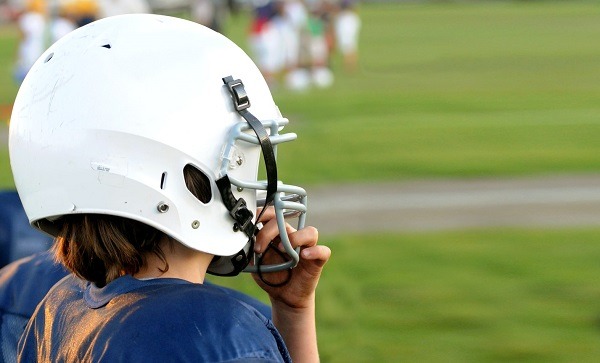About 1.7 to 3 million sports and recreational concussions occur annually, and nearly half of them go untreated or undetected.
Concussions are serious injuries and often a sign of some brain damage (temporary or permanent), though fewer people realize that they are also a threat to hearing health.
Plenty of studies confirm that blunt trauma (such as a concussion) is indeed a threat to hearing health, and this guide will show you everything you need to know about the link between concussions and hearing loss.
How Concussions Cause Hearing Loss
Concussions can cause hearing loss in many different ways, and it isn’t always apparent to the patient that they experienced hearing damage.
The most common way concussions cause hearing loss is through damage to the middle ear, which is responsible for sending sound waves to the inner ear. If the middle ear can’t send sound waves to the inner ear, it will be impossible for the patient to hear.
Another way that concussions can cause hearing loss is by damaging the inner ear directly. The inner ear translates sound waves into electrical signals (also known as nerve impulses) and is essential for hearing.
Finally, concussions can also cause hearing loss by damaging the auditory cortex, which interprets and processes sound. A telltale sign that it is damaged is if the person has trouble speaking.
Signs You May Have Concussion Related Hearing Loss
While some hearing loss is obvious, hearing loss after a concussion is not always so. The patient is typically disoriented and will prefer quiet environments after a concussion, so they may not notice that they can’t hear properly.
One of the first things you’ll notice if you have concussion-related hearing damage is that it’s challenging to process speech in environments with a lot of background noise. For example, if you’re in an office with printers and other background noise, you’ll be able to hear conversations, but you might not be able to distinguish what they are saying. Similarly, you may hear sounds but have difficulty determining from where they are coming.
Another sign you might have hearing loss is hearing a ringing in the ears (known as tinnitus). While you may still be able to hear, you’ll also hear a ringing noise that nobody else can hear. This noise is not a real sound but rather a sound created within your brain.
One other less noticeable sign you may have hearing loss is if you also experience vertigo. Vertigo is also caused by damage to the middle ear, so you might also have hearing damage if you have trouble balancing.
How to Treat Concussion Related Hearing Loss
Treating concussion-related hearing loss is essential to keep your brain functioning properly and maintain a higher quality of life.
The first step to treat your concussion-related hearing loss is to take a hearing test. This will give you a better idea of the type of hearing loss you have, and then you can work with an audiologist to figure out a solution.
Act Quickly
Leaving concussion-related hearing loss untreated is dangerous and can be treated more effectively if you catch it quickly. While hearing loss is typically not the top priority after a traumatic head injury, it can leave the most significant impact.
So rest well and get your hearing checked after a concussion.
About the Author
Pauline Dinnauer is the VP of Audiological Care at Connect Hearing, which provides industry-leading hearing loss, hearing testing, and hearing aid consultation across the US.
